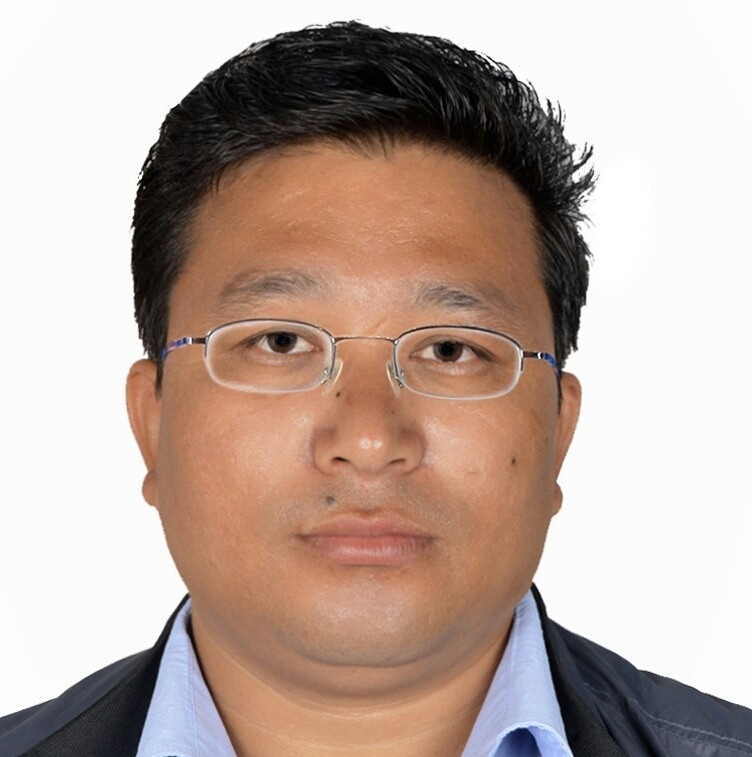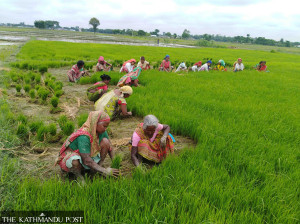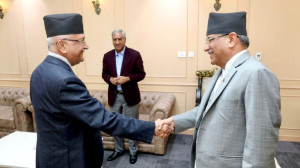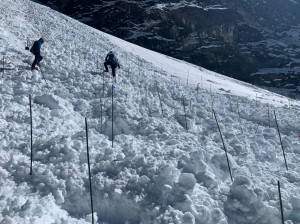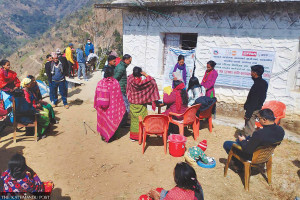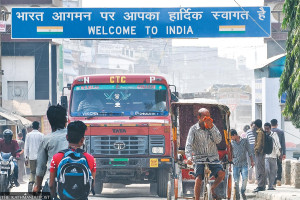 16.12°C Kathmandu
16.12°C KathmanduLumbini Province
Local units aim to produce doctors to tackle shortage
Paribartan Rural Municipality provides scholarship to a student per year who will work for at least two years at local hospital after completing studies.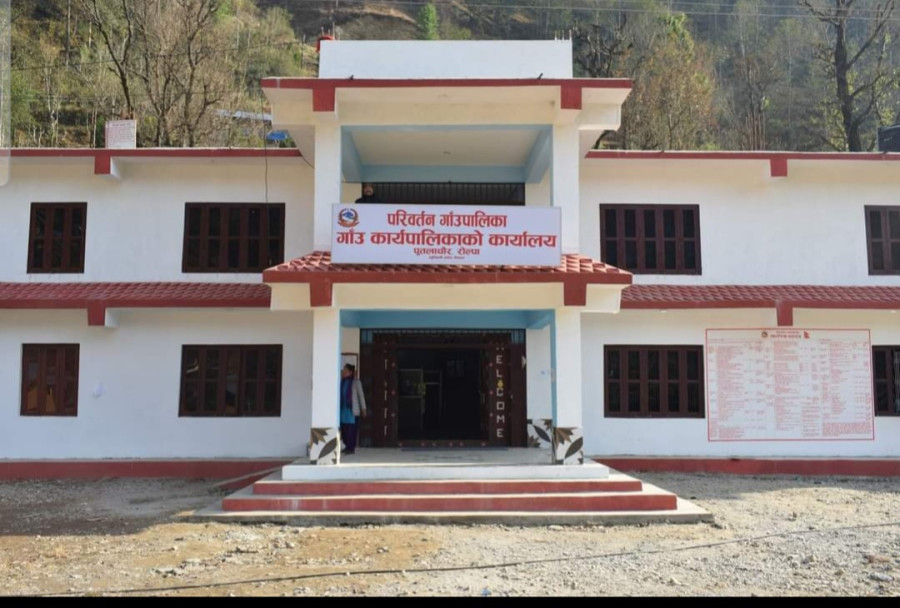
Kashiram Dangi
Chandra Gharti Magar of Rangsi village in Paribartan Rural Municipality-2 is the first recipient of a scholarship offered by the local unit to help her complete MBBS studies at the Biratnagar-based Nobel Medical College.
The 19-year-old had been worried about the expenses involved in pursuing a medical degree ever since she cracked the entrance examination and got admission to the college. She has been attending MBBC classes for the past two weeks.
The rural municipality’s latest move to provide scholarships to meritorious students from the fiscal year 2023-2024 with the objective to produce skilled human resources in the medical field within the rural municipality has taken Magar a step closer to fulfilling her childhood dream of becoming a doctor.
“My father is an accountant and does not have the means to pay for my higher education,” said Magar. “He would have somehow managed to collect the funds but it would be difficult for him. I was always worried about the high expenses of pursuing medical education. Now I can rest my fears and concentrate on my studies completely.”
According to Magar, it costs between Rs5 million and Rs6 million to complete an MBBS course. The course is five-and-a-half years long, with a one-year internship. The fee structure of an MBBS course can vary depending on the college and quotas.
“The scholarship programme is a boon for students like us whose family’s financial condition is weak,” she said.
The rural municipality’s scholarship scheme has not only helped deserving students pursue their MBBS but has also given the local unit the opportunity to tackle the shortage of doctors at the under-construction hospital in the rural municipality, says Suka Bahadur Budha Magar, chairman of the rural municipality.
“Last year’s rural municipal assembly had decided to provide funds as education assistance for at least one student of medicine from the rural municipality,” said Budha Magar. “The rural municipality decided to bear the expense of one student pursuing a career as a doctor. This move has a two-way benefit. The student gets to become a doctor without worrying about funds and the rural municipality gets a qualified doctor at the hospital.”
A 15-bed hospital is currently under construction in Ward 6 of the rural municipality.
According to Budha Magar, the rural municipality will spend Rs500,000 yearly on the scholarship programme for five-and-a-half years. The beneficiary of the scholarship programme has to serve at the local hospital for at least two years after completing the studies. “The doctor can decide if she wants to continue working at the hospital after the mandatory two years of service,” said Suk.
In order to make the scholarship programme for future doctors successful, a tripartite agreement will be signed between the local unit, the medical college, and the scholarship recipient.
Kala Devi Khatreni, deputy chair of the rural municipality, said that rural Rolpa has always faced a shortage of doctors at its hospitals and health posts. “Even doctors appointed by the government on a permanent basis do not stay in the district for long. Doctors cite a lack of benefits and good income opportunities in rural areas for their decision to avoid transfers to rural areas,” she said. “The rural municipality decided to educate their own students with the aim of encouraging them to stay in rural areas and engage in public service.”
“This programme is expected to give hope to underprivileged students who have good grades to pursue medicine but no resources. Chandra Magar did her initial education in the village school; passed her secondary and higher secondary education at Padmodaya Community School in Ghorahi, Dang. For MBBS studies, she got selected at Biratnagar-based Nobel Medical College out of 7,000 candidates,” said Khatreni. “We are very proud of her and encourage her to complete her education.”
Similarly, Rolpa Municipality has also announced that it will invest yearly in at least one student of the municipality pursuing medicine studies to bridge the demand-supply gap for doctors in remote and underdeveloped areas of the district.
“This decision was made in the recently concluded 13th municipal assembly,” said Surendra Thapa Gharti Magar, mayor of Rolpa Municipality. “We hope this initiative will help us produce more doctors from the villages who are willing to give back to their communities.”
Out of the 10 local units in Rolpa, two have introduced scholarship programmes for medical students.




